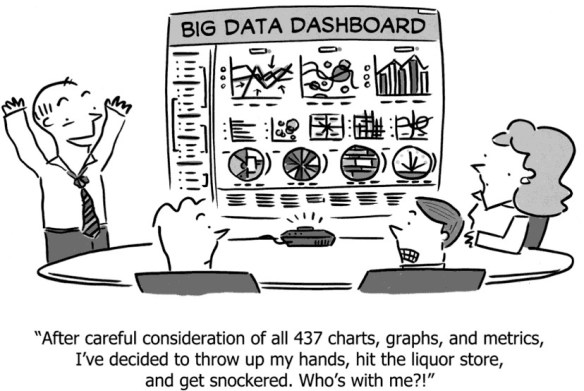 Our education system is built around outcomes. This is a good thing. Here’s how it works in a nutshell:
Our education system is built around outcomes. This is a good thing. Here’s how it works in a nutshell:
You work out what kind of outcome you want to see, hopefully check to see what your learners already know and can do, you might find or develop some resources, then you do some teaching, your learners do some learning and practising, and then you check again to see if what they know and can do lines up with what your intended outcome was.
If it doesn’t line up then you know you need to make some adjustments and you carry on. This is how innovation in business works as well. It’s also roughly how the scientific method works. It’s a kind of hypothesis testing model – to put it in fancy terms. It’s also how research works.
Here’s the next thing: All around us, in all parts of our lives technologies exist that measure and record what we do. Computers love counting stuff and they just keep getting better and better at doing it.
This generates data. Sometimes massive amounts of data.
On it’s own this data is meaningless. And if the data is crappy in the first place then it’s not much use. Garbage in = garbage out. However, if you have good data and you can make sensible statements about what it means (or might mean), then you are better placed to make decisions about current and future actions.
Decisions based on reliable data tend to be better than decisions based on what feels good, what we’ve done in the past, or some idea others have put into our heads.
For example, if you watch sports you will have noticed that massive amounts of sports-related data are now available to commentators, critics, coaches and others. A clever coach can use this data to make strategic decisions about how to train a team.
This is data-driven or data-informed decision making. And this is not to diminish the role of intuition and experience. But having good data should help us make better decisions.
You’ve probably figured out where I’m going with this.
Take a look a what’s happening in education. More and more data is being collected by different organisations and agencies about everything to do with learning and teaching. Some of this data is quantitative like assessment scores. Other data is more qualitative, like from provider evaluation and audits.
For better or worse, the data collection and the data is unlikely to go away. In fact, funding organisations are already using data to make decisions about how they allocate limited resources in education. If anything, this data-influenced decision making is going to get more finely grained as the data collection becomes smarter.
So what are you going to do about it? What am I going to do about?
One way forward is to get ready to feel threatened by the data, to embrace the suck, and to start thinking about how we can use whatever data we already have access to ourselves in order to take some ownership over the process.
As a tutor or trainer, you may not have access to massive databases or be a number crunching ninja, but if you work with foundations-focused learners in NZ you do have access to the following tools for your data-informed decision making toolbox:
- The TEC’s Literacy and Numeracy for Adults Assessment Tool: This tool is a broad brush diagnostic, but it can give you some finely grained data to use to inform your teaching if you dig into it.
- Your own contextualised literacy and numeracy diagnostic and other assessments: If you teach in trades or any kind of vocational training area you should also have your own foundations focused diagnostic assessments that attempt to drill down into what your learners know and can do. You can use this data to inform how you are working week to week with your learners.
- Making your outcomes explicit: It’s hard to measure your own stuff if you haven’t first figured out what it is that you’re trying to do. The more explicit you can be with your outcomes (whether for course content or underpinning literacy and numeracy) the better.
- Your own ability to map the literacy, numeracy and other demands of your training: The Learning Progressions for adult literacy and numeracy are a free tool for mapping literacy and numeracy demands. It’s easy to get started and it’s built into the professional development work that we do with tutors.
- Learning plans: Using learning plans with your learners is another way of gathering data over time.
- Self evaluation data: All NZQA accredited training providers are required to conduct ongoing internal self assessment and internal evaluation, as well as take part in external evaluation. This means, that as a trainer or tutor, you should be looking reflectively and critically at what you do on a regular basis and allowing this thinking process to influence your decisions. Probably you do this anyway, but make sure you are leaving some kind of evidence trail that you and others can go back to.
2 thoughts